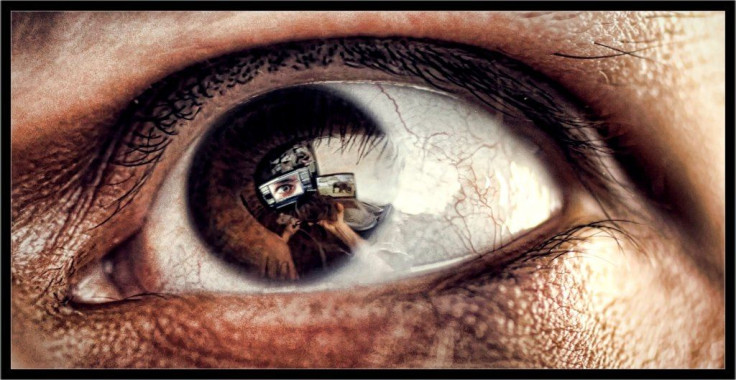Look Into My Eyes: Mimicking Pupil Dilation May Lead To Increased Trust

Would you trust your money with a stranger after only looking into their eyes? If yes, their pupils may convince you otherwise. Researchers from Leiden University in the Netherlands took a closer look at the human eye to see if they could spot a glimmer of trust before another person made a decision to rely on them or not. Their study, published in the journal Psychological Science, demonstrates the ways in which human eyes interact and how they may play a role in building trust.
"People generally underestimate the importance of pupils, despite the fact that we look into them each day," said the study’s lead author Mariska Kret, a psychological scientist at Leiden University, in a press release. “The pupil provides a rich source of social information — we can force a smile, but we can't force our pupils to dilate or constrict. Our findings show that humans synchronize their pupil size with others and this behavior, over which we have no voluntary control, influences social decisions."
For the study, researchers recruited 61 students from the University of Amsterdam to participate in an investment game. Each student was told to watch a four-second-long video of their partner and to decide whether they should transfer 5 Euros to them, or none at all. The video clips only consisted of a set of eyes that were dilated, constricted, or static. If participants agreed to a 5 Euro investment, their money would be tripled, and their partner would have the power to choose how much money to give back.
The researchers found participants were more likely to trust partners who had dilated pupils. Eye-tracking technology showed the participants even mimicked their partners’ pupil sizes, both when dilating and constricting. The participants were most likely to invest their money, however, when they dilated their pupils in response to seeing partners of the same ethnicity — the study involved people of either Western European or Asian descent.
The study builds on previous research in which Kret and her team discovered that the size of pupils in humans and chimpanzees synchronized when looking into the eyes of their own species. It led them to believe pupils may have a role in building trust bonds between individuals. Large, dilated pupils were interpreted as a sign of safety, which led them to believe that if another individual unconsciously responded by dilating their own pupils, it would lead to the establishment of mutual trust.
"The results of the current study further confirm the important role for the human eye in what people love and fear," the researchers wrote. "More specifically, pupil mimicry is useful in social interactions in which extending trust and detecting untrustworthiness in others go hand in hand, and it benefits in-group interactions, survival, and prosperity."
What is it about the eyes that signifies trust? From the moment we’re born, eye contact between mother and infant forms the basis for future interactions. When a mother breaks the gaze, infants interpret it as disapproval and can grow up associating averted gazes with deception.
The Purpose of Pupils
Establishing trust through the eyes is one of the innate designs of human biology, according to the Scientific American. The visual cortex located in the back of the brain processes and assembles the actual images we see through the eyes, but an older part of the nervous system controls the pupils. The autonomic nervous system regulates the size of pupils, which are also attuned to other involuntary body functions, such as heart rate and perspiration.
The iris, a dilator muscle within the eye, controls how much light enters the eye in order to protect it from too much light exposure — similar to a camera’s aperture. When light isn’t a threat, the pupil can expand up to eight millimeters, which is approximately the diameter of a chickpea. However, pupils can also be stimulated by the nervous system’s “fight-or-flight” response when the body is under stress, causing them to dilate. The pupils also respond to cognitive and emotional events, such as trying to process a math problem or reflecting on a memory.
German Neurophysicist Wolfgang Einhauser-Treyer believes pupil dilation can go beyond biological response to“ betray an individual's decision before it is openly revealed." He’s demonstrated how the timing of dilation correlates with certain decision making. However, when it comes to human-to-human trust, more research will be necessary before we can start looking to another person’s eyes to determine they’re lying.
Source: Kret ME, Fischer AH, and De Dreu CKW. Pupil Mimicry Correlates With Trust in In-Group Partners With Dilating Pupils. Psychological Science. 2015.



























